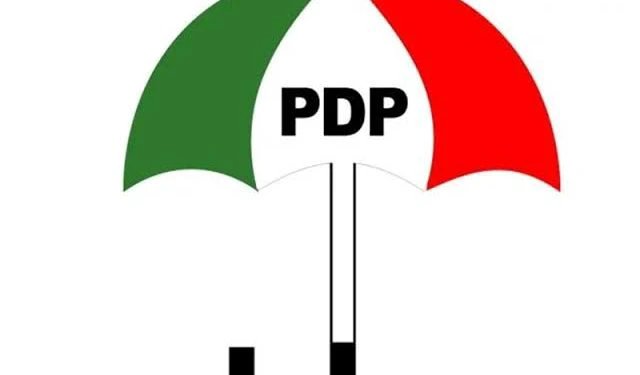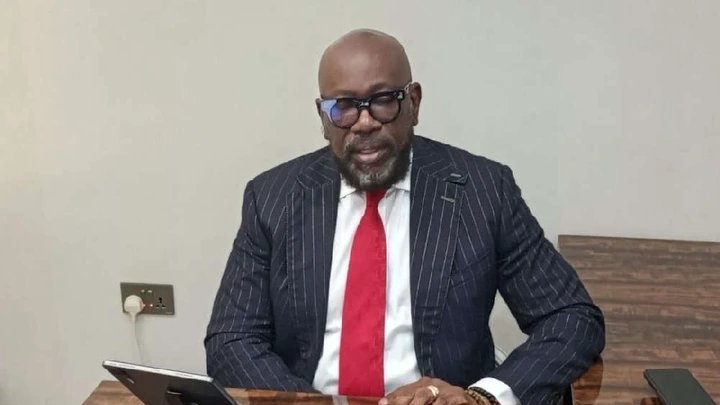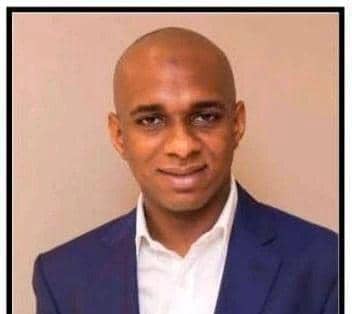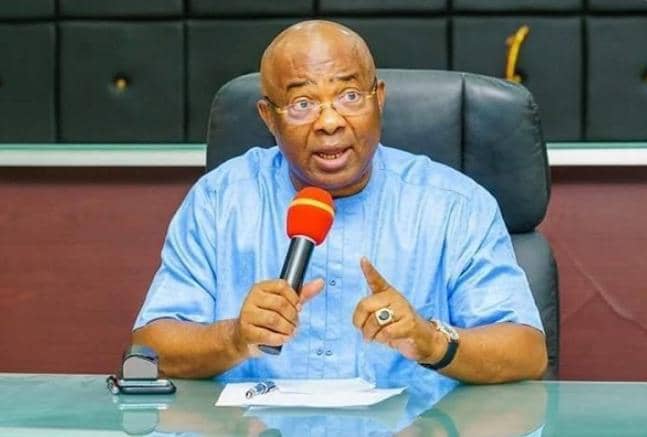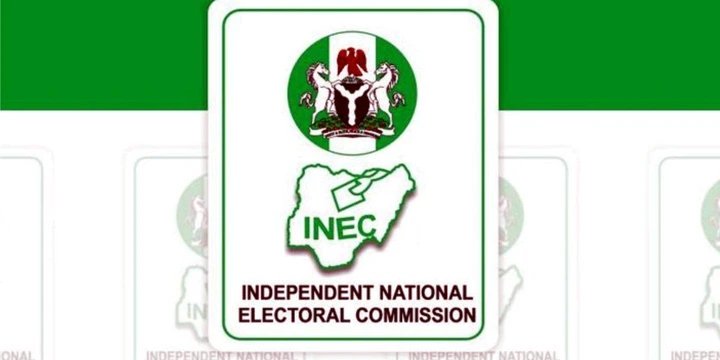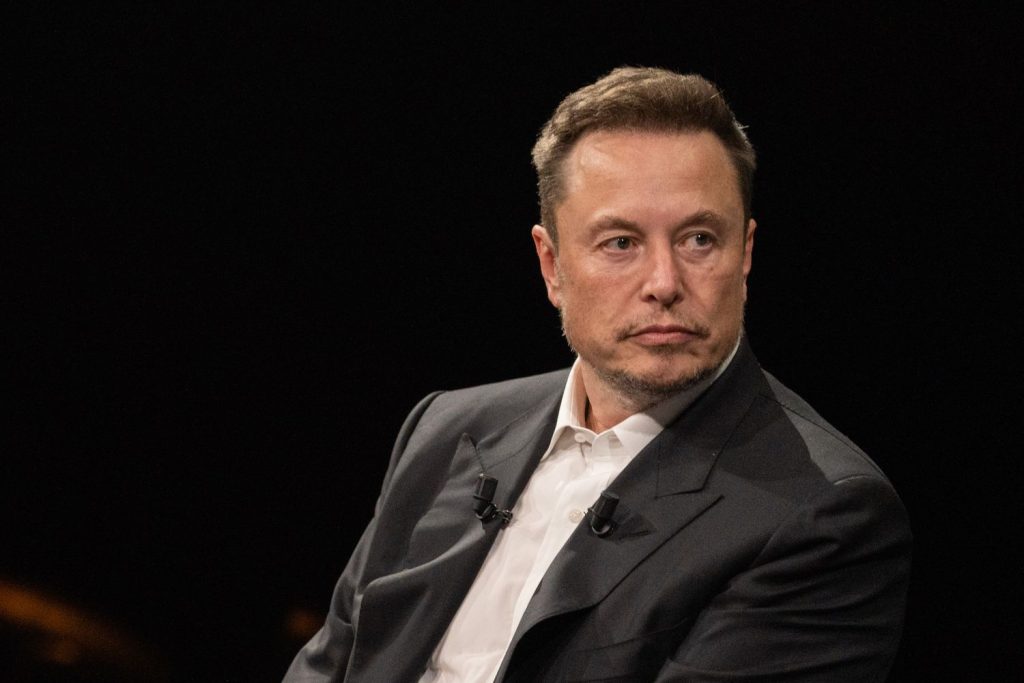Economy
Subsidy removal & Nigeria’s 15.6m liters daily fuel usage: Consumption, smuggling or cartel fraud?
The Gazette Team of the Non-Governmental Organisation (NGO), BudgIT, has raised concerns over the recent fuel subsidy removal and Nigeria’s daily petroleum consumption reduction, wondering if the issue is consumption, smuggling or fraud by an unknown cartel.
BudgIT raised questions over the issue, wondering if the lessened consumption owes to the reduced number of vehicles plying our roads due to high cost of the Premium Motor Spirit (PMS), otherwise known as petrol, or less smuggling owing to the higher cost of fuel in the country as a result of the fuel subsidy removal.
BudgIT raised the concern in a newsletter made available to New Band on Monday following the recent controversies revolving around the fuel subsidy removal and the drastic reduction in the quantity of petrol consumed nationwide.
The Organisation notes: “The ongoing debate surrounding Nigeria’s petrol consumption continues to perplex both experts and the general public alike.
“It is a conundrum that has lingered for years, with conflicting figures from various authorities in the oil and gas sector. Is the data we’ve been fed truly reliable, or is there more to the story than meets the eye?” BudgIT asked.
According to the Nigerian National Petroleum Corporation, NNPC, in the first three months of 2022, Nigeria recorded an average daily consumption of 64.14 million liters, while the Nigerian Midstream and Downstream Petroleum Regulatory Authority (NMDPRA) revealed in September 2022 that Nigeria’s average daily petrol consumption was 66.8 million liters.
However, at the beginning of 2023, the Group Chief Executive Officer of the NNPC Limited, Mele Kyari, said there is no credible data to ascertain the daily consumption of petrol in Nigeria while also stating that there is credible data on the actual volume of petrol evacuated from the depots.
There is also the issue of petrol smuggling to neighboring countries as record shows that at least 15.6 million liters of petrol are smuggled daily across Nigeria’s borders to neighboring countries.
“The volume sounds illogical when measured against the logistics required to move 15.6 million liters of petrol out of Nigeria daily,” BudgIT notes.
In the newsletter, BudgIT agreed that it is a fact that a significant incentive exists for smuggling petrol due to the high price disparity before the petrol subsidy removal.
However, “it raised question of if truly up to 15.6 million liters are smuggled out daily or if there is a cartel that guzzled the trillion of payments for PMS subsidy, when in the real sense there was no importation,” the BudgIT mulled.
Average monthly PMS consumption, January to July 2023
Following the petrol subsidy removal on May 29, 2023, by President Bola Tinubu, analysis of daily truck-out data published by the Nigerian Midstream and Downstream Petroleum Regulatory Authority (NMDPRA) show that petrol consumption has reduced by more than 24 million liters per day on average.
The average daily consumption in May was 69.54 million liters which fell to 49.48 million liters in June, representing a 28.3% drop.
In July, this margin increased further to 34.61%, the equivalent of 24.06 million liters, and average daily consumption for the month fell further to 45.74 million liters.
The petrol subsidy removal is believed to reduce all the incentives for hiking the PMS consumption figure in an unempirical and illogical manner since, over the years, subsidy payments have put a lot of impediments on transparency and accountability in the oil and gas sector revenues management.
The Big Question: Less consumption or less smuggling?
BudgIT asks: “Does a 24 million liters decrease represent a reduction in PMS consumption in Nigeria or a reduction in smuggling PMS from Nigeria to neighboring countries?”
Recall that some days after the subsidy removal announcement, there was a rumor that the PMS price increased in all neighboring countries based on some snapshots that filtered through the internet.
BudgIT continues: “This begs the question of if the real problem was the subsidy payment for PMS in Nigeria or about blocking the loopholes that allow our PMS to move to neighboring countries indiscriminately and curbing the holds of the cabal that engenders decades of subsidy payments without importing PMS into the country.
“On the other hand, the ripple effects of the petrol subsidy removal alongside the unification of exchange rates have been multi-faceted. There is a massive increase in transportation costs, food inflation, manufacturing, and energy costs.
“Small enterprises, particularly those relying heavily on petroleum products, currently face substantial operational costs, negatively affecting their profit margin and competitiveness. Employees who commute daily face an increase in transportation costs and the like.
“Additionally, there has always been the issue of unreliable power supply in the country, where households and businesses are forced to rely on generators for electricity.
“With the outrageous increase in petrol price comes an automatic rise in energy and manufacturing costs.
“The economic hardship inspired by the subsidy removal and the unification of the foreign exchange rates is biting beyond what even an average Nigerian can cope with.
“This situation would push many more below the poverty line and require that the current administration take a second look at its policies and seek ways to make their impact citizen-friendly,” it added.
BudgIT, therefore, urged the federal government to embrace and deploy technology that allows it to establish the actual PMS consumption in the country.
It also asked it to put measures in place to block all the loopholes that would enable imported PMS to find their way to neighboring countries and re-evaluate if subsidizing Nigeria’s actual PMS consumption is hurting Nigeria’s revenue management or not. Read more.
—
©Copyright 2023 News Band
(Click here for News Band updates via WhatsApp, or Telegram. For eyewitness accounts/ reports/ articles, write to elstimmy@gmail.com. Follow us on Twitter or Facebook.)
Africa
U.S. Govt Reacts to Nigerian Minimum Wage

The United States government has said that Nigeria’s new N70,000 minimum wage has lost real value due to the sharp fall of the naira, leaving millions of workers trapped in poverty.
According to the 2024 Country Reports on Human Rights Practices, released by the U.S. Department of State’s Bureau of Democracy, Human Rights, and Labour, the wage translates to just $47.90 per month.
The report noted that currency devaluation and weak enforcement have undermined the wage increase.
The report also revealed that many states are yet to implement the new wage law. Several governors cited financial challenges as the main excuse.
Even where the law exists, compliance remains poor because of limited labor inspectors and weak oversight from authorities.
Wage Devaluation and Exclusion
The report highlighted that firms with fewer than 25 workers are excluded from the minimum wage law, leaving millions of employees without protection.
This also explained that about 70 to 80 percent of Nigeria’s workforce operates in the informal sector, where wage and labor rights are almost never enforced.
This means a majority of Nigerians continue to earn far below the national benchmark, despite the government’s approval of N70,000 as the new minimum wage.
The U.S. report stressed that the naira’s sharp decline, trading above N1,500 to the dollar, had worsened the wage erosion. This has left workers unable to afford basic needs, pushing many deeper into poverty.
Human Rights and Labor Challenges
The document pointed out that weak enforcement of labor laws contributes to worsening poverty levels in the country.
Workers in the informal sector, such as street vendors, artisans, and small traders, rarely benefit from labor protections.
The report also noted that Nigeria’s minimum wage is rarely sufficient to cover basic food, housing, and transport needs.
This has further exposed structural gaps in the government’s approach to economic reforms and poverty reduction.
Governors Push Investment Platform
Meanwhile, the Nigeria Governors’ Forum (NGF) has launched a new investment initiative called NGF Investopedia.
The platform seeks to attract capital flows into bankable projects across all 36 states, with the goal of tackling Nigeria’s annual $100 billion infrastructure financing deficit.
The launch event in Abuja gathered governors, international partners, and investors. The forum described the platform as a long-term strategy to unlock growth opportunities across states and strengthen Nigeria’s subnational economies.
NGF Chairman and Kwara State Governor, Abdulrahman AbdulRazaq, said Nigeria must urgently leverage its human and natural resources to address poverty and joblessness.
“Here is Africa’s largest economy, endowed with abundant human and natural resources,” he said, stressing that state governments must play a bigger role in attracting investments and supporting local industries.
A Widening Gap
The contrast between the U.S. report on wage decline and the governors’ push for investment highlights Nigeria’s economic paradox.
While authorities promote foreign capital inflow, millions of workers continue to survive on wages that have lost most of their value.
With inflation rising, food prices soaring, and the naira weakening, the gap between earnings and cost of living keeps widening.
Unless enforcement improves and the informal sector is integrated into wage protections, the N70,000 benchmark may remain symbolic rather than effective.
Economy
Global Card: Fidelity Bank Hits Milestone As Fidelity Naira Card Accepted Globally

Fidelity Bank may have hit another milestone the Fidelity Naira Card is now accepted globally.
This was disclosed in a message sent to Diaspora Digital Media (DDM) via email on Monday.
According to the statement entitled “Your Fidelity Naira Card Now Works Globally; Shop, Pay and Withdraw with Ease!“, customers can buy favourite global brands online using their Fidelity Naira Card.
The band also stated that they can equally pay at POS terminals abroad and make cash withdrawals at ATMs as they travel.
The message reads:
“We’re excited to let you know that your Fidelity Naira Card is now enabled for global use — so you can shop, spend and withdraw internationally with confidence.
“Here’s what you now enjoy every quarter:
|
Channel |
Transaction Limit |
| ATM Withdrawal abroad | $500 |
| Online/Web & POS Payments | $ 1,000 |
“What does this mean for you?
- Shop your favourite global brands online
- Pay at POS terminals abroad with ease
- Withdraw cash at ATMs when you travel.”
The statement, however, noted that the $1,000 quarterly limit applies to all international transactions combined, including ATM withdrawals, online purchases, and POS payments.
The bank urged customers who may need assistance with setting card limits or activating their cards for global use, to contact the bank’s customers care “Centre Trueserve”, which is available round the clock, whether in Nigeria, or outside the country.
“Your world, your card — spend smart, spend globally with Fidelity,” the message concludes.
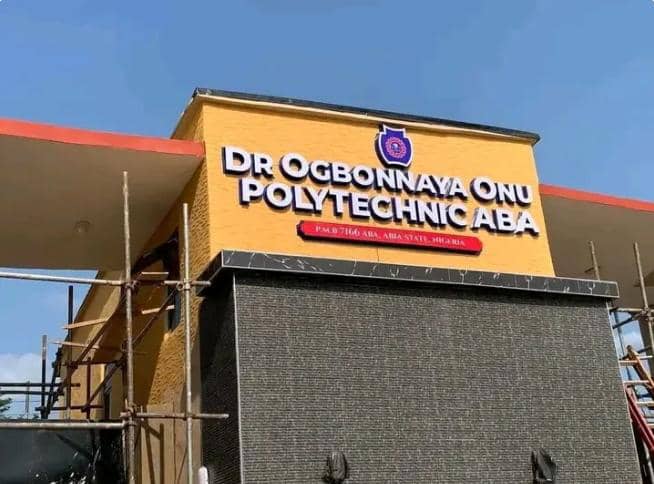
(DDM) – The Abia State Government has paid 340 former staff of Ogbonnaya Onu Polytechnic, Aba, who were disengaged between 2018 and 2021.
Governor Alex Otti announced the payment while briefing journalists at Government House, Umuahia.
DDM gathered that the Governor explained that out of 461 sacked workers, 340 had received their entitlements, while the balance would be settled after a verification process.
He said the state would not only pay but also review the circumstances of their dismissal.
According to him, anyone unfairly removed from service would be reinstated to ensure justice is served.
The Governor’s statement comes after years of protests and petitions by affected workers, who accused past administrations of victimization and negligence.
Many of the disengaged staff had spent years without salaries, pensions, or benefits, forcing some into hardship and ill-health.
Otti assured that his government would not abandon them and pledged to treat workers fairly, regardless of political affiliations.
He further commended the management of Ogbonnaya Onu Polytechnic for attracting a N2 billion intervention fund from Tertiary Education Trust Fund, TETFund.
According to him, such funding would help reposition the institution and improve the learning environment for students.
On the $125 million Islamic Development Bank loan recently approved for Abia State, Otti dismissed fears of debt traps.
He explained that the only challenge that might arise would be foreign exchange instability, but maintained that the loan was a low-risk facility.
The Governor insisted that the facility would be managed responsibly and transparently to support development projects.
Otti also revealed that his administration had spent about N14.43 billion on retrofitting 61 public schools as of June 2025.
He dismissed allegations by an APC group claiming that N54 billion budgeted for schools had been squandered.
According to him, the opposition was spreading propaganda to discredit his administration’s achievements in education.
He emphasized that the projects were visible across the state and could be verified by residents and the media.
In the health sector, the Governor directed the Commissioner for Health, Professor Enoch Uche, to commence the construction of an isolation and treatment centre.
The facility will be located at the Abia State Specialist Hospital, Amachara, as part of plans to strengthen public healthcare.
Otti said his government was determined to deliver projects that would directly impact citizens instead of indulging in wasteful spending.
He added that Abia had chosen a new path of transparency, accountability, and people-centered leadership.
The Governor maintained that the era of abandoned projects and fake promises in Abia was over.
Economy
BREAKING: Emiral hosts Warri business summit, dinner party, unveils elixir for natural health solution
DDM News

(DDM) – Warri, Delta State, is set to witness a major business and lifestyle gathering as Emiral brand hosts its highly anticipated Business Summit and Dinner Party.
The event, scheduled for Saturday, August 16th, 2025, will begin at 11 AM at the Jubilee Retreat and Conference Centre, behind Mother of the Redeemer Catholic Church in Warri.
Organizers say the summit is designed to bring together professionals, entrepreneurs, and business leaders for a full day of networking, business insights, and celebration.
Emiral, a fast-growing name in the health and wellness industry, is also using the occasion to showcase its flagship product, Emiral Elixir.

DDM gathered that the elixir is marketed as a natural health solution crafted with 100% organic ingredients sourced from Africa and Asia.
According to the company, the product detoxifies the body, burns excess fat naturally, and strengthens the immune system.
The firm says consistent use of the elixir can help prevent and assist in the treatment of multiple health conditions.
These include stroke, fibroid, fertility challenges, arthritis, asthma, various cancers, epilepsy, diabetes, hepatitis, prostate disorders, high cholesterol, liver and kidney complications, fungal infections, sickle cell anemia, and high blood pressure.
The brand further highlights its effectiveness in easing food poisoning and hangover symptoms.
One of the unique features of Emiral Elixir is the inclusion of hydrogen water in its formulation.
Emiral insists this scientific addition preserves the potency of the natural ingredients and aids in transporting medicinal benefits to the cellular level.
The company describes the elixir as a holistic wellness solution, balancing hormones, improving gynecological health, and enhancing skin appearance.
It is also promoted as effective in reducing pain, bloating, and heavy bleeding in women, while providing overall vitality for daily living.
The Warri summit, therefore, is not just a product promotion but a strategic platform for Emiral to strengthen its identity as a premium lifestyle brand.
Industry watchers believe the gathering highlights how Nigerian businesses are merging health, innovation, and entrepreneurship to serve a growing wellness-conscious population.
Emiral says its mission is to foster a community that values knowledge, health, and connection through business-focused events.
Observers argue that the timing is crucial, as Nigerians increasingly embrace natural health solutions amid rising awareness of the dangers of processed supplements.
The brand is positioning itself to compete in a global market where organic and plant-based remedies are gaining momentum.
DDM notes that Warri, a city traditionally known for oil and commerce, is also becoming a hub for health-focused enterprises and entrepreneurial summits.
With Emiral’s outreach, the city could further consolidate its reputation as a centre for innovation in southern Nigeria.
For more details about Emiral Elixir and its distribution, the company has urged interested participants to contact its representatives through official channels.
As expectations rise ahead of the summit, Emiral appears poised to make a bold statement about natural wellness and sustainable business growth in Delta State.


🚨 Follow DDM WhatsApp channel Now!
Get breaking news, hot gist, and updates FIRST!
*📲 Click to join 👇* https://whatsapp.com/channel/0029Vajkwdc4dTnFHl19vW3g
*Apply at the link below and Start Your Tech Journey:*
👇🏽
https://www.ddm.media/cohort-6
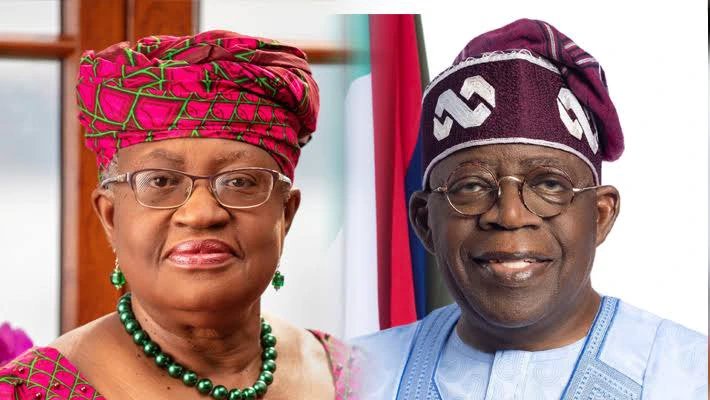
(DDM) – The Director-General of the World Trade Organisation (WTO), Dr. Ngozi Okonjo-Iweala, has issued a clarification following backlash over her comments on Nigeria’s economy during her visit to President Bola Tinubu.
Dr. Okonjo-Iweala explained that her recent statements had been misunderstood and that she recognizes the economic hardships Nigerians are currently facing due to reforms.
She emphasized the importance of implementing social safety nets to aid vulnerable populations who are being affected by these reforms.
During her meeting with President Tinubu at the State House in Abuja, which took place alongside Trade Minister Jumoke Oduwole, discussions focused on Nigeria’s economy and strategies to cushion citizens from the adverse effects of ongoing reforms.
The WTO Director-General highlighted the launch of the Women Exporters Fund for the Digital Economy, a collaborative initiative between the WTO and the International Trade Centre aimed at empowering Nigerian women to create and sustain jobs.
She revealed that Nigeria was among four countries globally selected to benefit from this fund, with 67,000 women applying and 146 winners slated to receive direct financial and technical support to boost their businesses.
According to Okonjo-Iweala, the fund is designed to help women weather economic challenges while fostering growth and employment.
While acknowledging the efforts made by President Tinubu and his administration to stabilize the economy, she reiterated that economic stability alone is insufficient.
She stressed that the next critical step is economic growth and the urgent need for social safety nets to support those impacted by the government’s reforms.
In her own words, Dr. Okonjo-Iweala stated, “We need to grow the economy and put social safety nets in place so that people feeling the pinch of the reforms can have some support to weather the hardship.”
Her comments came in the wake of criticism suggesting that she had overly praised the administration, but she clarified that she was acknowledging the progress made while underscoring the continuing struggles faced by many Nigerians.
Opposition voices, such as the African Democratic Congress, had accused the government of distorting the WTO chief’s remarks to paint an overly positive picture of the economy.
They pointed out that despite a so-called stable economy, widespread poverty, unemployment, and inflation remain critical issues that must be urgently addressed.
The World Trade Organisation leader’s visit to President Tinubu also coincided with the launch of impactful economic initiatives aimed at empowering women business owners and reinforcing digital trade, demonstrating her commitment to inclusive economic development.
Dr. Okonjo-Iweala’s clarifications spotlight the complex realities of Nigeria’s current economic condition, where reforms have brought certain stability but also significant hardship necessitating comprehensive social programs and growth measures.
Her remarks call on the government to balance reforms with proactive support for Nigerians struggling with poverty and joblessness to build a more resilient, inclusive economy over the coming years.
-
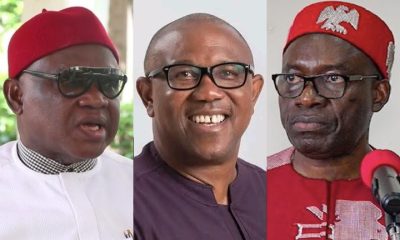
 Featured3 days ago
Featured3 days agoYour Attacks on Peter Obi Are Petty, Stop It! Chekwas Rebukes Soludo
-
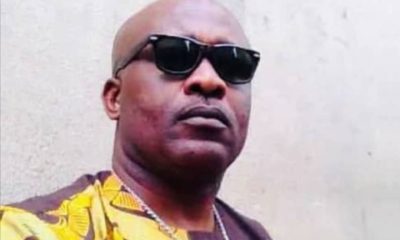
 News2 days ago
News2 days agoTension in Anambra community as senior police officer shoots kinsman dead
Colleagues, others try cover-up; victim's family fights back
-

 News6 days ago
News6 days agoAnambra South Bye-Election: APC Chief Rescues Deputy Gov Caught In Vote Buying From Angry Youths
By Chuks Collins, Awka
-

 News4 days ago
News4 days agoNigerian visa applicants must provide 5-yr social media history — US embassy
-
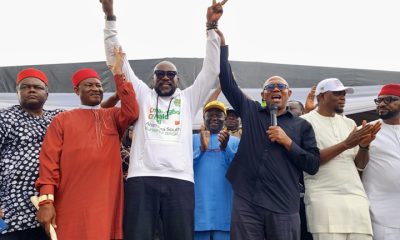
 Analysis5 days ago
Analysis5 days agoSystemic Sabotage: How APC, INEC Colluded To Undermine Amamgbo’s Senatorial Bid
By Arthur Ezechukwu
-

 News2 days ago
News2 days agoTerrorist Organisation: APC, PDP Members in US, UK, France Risk Deportation
-

 Celebrity/Entertainment4 days ago
Celebrity/Entertainment4 days agoWhy single mothers can’t raise boys into proper men — Jim Iyke
-

 News5 days ago
News5 days agoBREAKING: Troops arrest Nigeria’s most wanted terror kingpin
-

 News7 days ago
News7 days agoWe’ll compensate graduate whose leg was crushed by our truck — Dangote
-
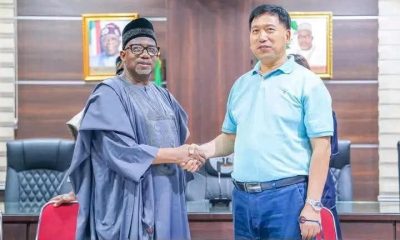
 News7 days ago
News7 days agoBauchi gov appoints Chinese economist as adviser


![Welcome to the hottest episode of DDM Celebrity Gossip Show! 🍵 Dive into the latest Naija gist that’s got everyone buzzing! 😎 This week, we’re spilling the tea on Toke Makinwa’s tearful baby reveal—her emotional journey to motherhood at 40 will leave you speechless! 🚨 Plus, comedian Sabinus is making waves with his epic Port Harcourt road move—is this his boldest flex yet? 🛣️ We’re also breaking down the BBNaija eviction shock with Otega and Kayikunmi OUT of the house fans are shook! 😱 And don’t miss Ayra Starr’s spicy photo drama that’s lighting up the internet! 📸
🕒 Timestamps
[00:19] Intro with Josiah & Blessing - DDM Celebrity Gossip Show
[01:11] Toke Makinwa’s Tearful Baby Reveal
[03:51] Sabinus’ Epic Port Harcourt Road Move
[06:42] BBNaija Eviction Shock: Otega & Kayikunmi OUT
[09:39] Ayra Starr’s Spicy Photo Drama
[15:13] Final Thoughts & Hot Takes
[17:00] Outro - Subscribe & Join the Gossip!
🔔 Subscribe to DDM Celebrity Gossip Show for the freshest Naija entertainment news, exclusive celebrity updates, and viral moments! Drop your thoughts in the comments—who’s your fave BBNaija housemate now? 👀 Hit that like button and share the gossip! 💬
#bbnaijaeviction
#TokeMakinwa, #BBNaija, #Sabinus, #AyraStarr, #CelebrityGossip, #NaijaGist, #BBNaijaEviction, #TokeMakinwaBaby, #SabinusPortHarcourt, #AyraStarrPhotos, #NigerianCelebrities, #EntertainmentNews, #ViralGossip, #NaijaEntertainment, #DDMCelebrityGossip,
📲 Follow us on Instagram & X for more tea: @Diasporadm
🎥 Watch more:https://youtube.com/playlist?list=PLUhAarYYBZ3_FJvrxuQrKVs2mFhM77lY4&feature=shared
💌 Contact:diasporadigitalmedia@gmail.com](https://diasporadigitalmedia.com/wp-content/plugins/feeds-for-youtube/img/placeholder.png)
